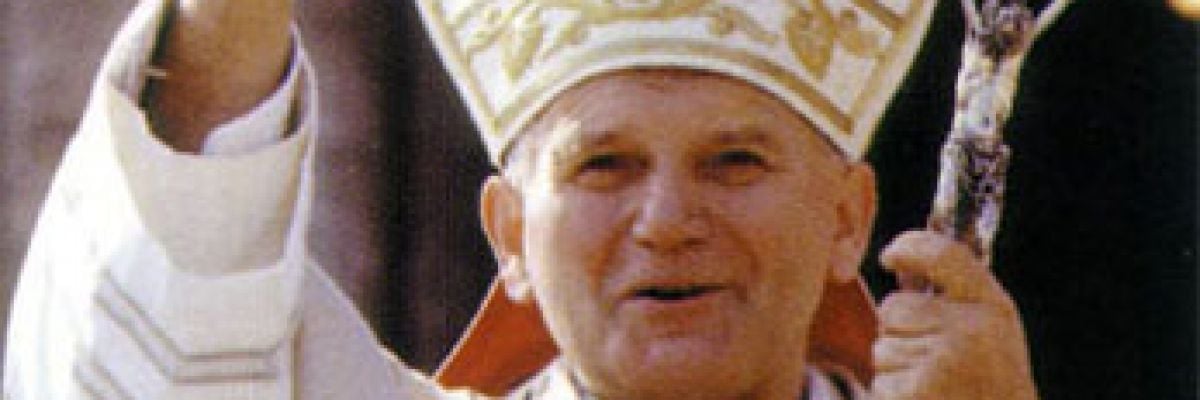
Church historians generally recognize two popes with the title “the Great”: St. Leo I (r. 440–461) and St. Gregory I (590–604). Some Catholic historians add St. Nicholas I (858–867). Pope St. John Paul II’s recent canonization was cause for discussion over whether he, too, should be afforded this honorary title.
Some Catholics granted the designation even before his canonization, as the names of a high school in Dumfries, Virginia, and a university in Escondido, California, attest. Books published to coincide with his canonization also made use of the title (see here and here). Many others have applied it informally; still others argue against it. The discussion leads to the question of just what makes a pope “great” to begin with.
The answer lies in reviewing the life and history of those successors of Peter considered “great.”
Pope St. Leo the Great
Not much is known of St. Leo I’s life before his pontificate, but we know he was a deacon of the Church in Rome and was sent on a diplomatic mission to Gaul (modern-day France). While there, news reached Leo that Pope Sixtus III had died and Leo had been elected to replace him.
Leo’s twenty-one-year pontificate was marked with great secular and ecclesiastical troubles. The empire was a shadow of its former self and was soon to collapse in the West (in 476). At a time when the Church and world needed a strong leader, Leo stood tall. He focused on the unity of the Church, enforcing discipline and encouraging, instructing, and rebuking other bishops. Leo is well remembered for his defense of the orthodox Faith, especially against the Monophysite heresy, which denied the full humanity of Jesus by asserting that his human nature was absorbed into his divine nature.
Leo wrote a defense, known as the Tome, of the orthodox teaching that Jesus has a divine and a human nature and sent the work to the patriarch of Constantinople, St. Flavian, who promptly excommunicated Eutchyes. Eutchyes and his supporters convinced the emperor to step in and call a council that then deposed St. Flavian and exonerated Eutchyes.[1] Eventually, the matter was settled at the ecumenical Council of Chalcedon (451), where Leo’s Tome was read and the assembled bishops acknowledged the authority of the pope and his teaching that Jesus is “to be acknowledged in two natures, without confusion, without change, without division, without separation.”[2]
Leo would be worthy of the title “the Great” for this key Christological contribution alone, but the title is also appropriate for his defense of the city of Rome from the Huns. In the fifth century, the Huns began their march from the Mongolian steppe to Italy, arriving in 452 under the leadership of Attila. When news of the approaching Hun army reached Leo, he decided to leave Rome and confront the savage chief. History does not record what was said between the humble, aged pontiff and the barbarian conqueror, but the results of the meeting are known: Attila did not sack the city.
Pope St. Gregory I
Born into a rich and holy patrician family nearly eighty years after the pontificate of Leo I, Gregory began his public life as a civil servant but eventually resigned his secular office to become a monk.[3] He considered his time as a monk to be the happiest of his life and would have enjoyed spending the remainder of his life in prayer and solitude, but the Lord had other plans.
When Pope Pelagius II (r. 579–590) died, Gregory was elected pope and greeted the news by writing a letter to the emperor begging him to repudiate the election. When the emperor refused, Gregory fled Rome and hid in a cave for three days in the hope that his absence would compel the election of another. It was not to be, and Gregory accepted his papal election.
As pope, Gregory defended the Church and the papacy from incursions by secular rulers. He reinforced papal primacy and restored prestige and respect to the office. While pope he retained his humble monastic lifestyle and spent considerable time and money on caring for the poor of Rome. He adopted the title Servus Servorum Dei (Servant of the Servants of God), reformed the liturgy, preserved the tombs of saints, and wrote theological treatises. Gregory is considered one of the “great” popes due to his defense of papal primacy, his theological writings (he wrote a work entitled Pastoral Care, on the role and duty of bishops) and his support for missionaries, who succeeded in spreading the Faith in Britain.
Pope St. Nicholas I
Nicholas was drawn to a life of service in the Church from an early life. Elected pope in the middle of the ninth century, Nicholas navigated the Church through a time of heightened tension with Western and Eastern secular rulers.
He also successfully asserted the moral authority of the papacy and defended the sacrament of marriage when he ruled in favor of Theutberga’s marriage to Lothair of Lorraine. Lothair had divorced Theutberga and married his concubine. When a synod of Frankish bishops inappropriately recognized the divorce, Theutberga appealed to Rome. Nicholas struck down the ruling of the local synod and defended the validity of the bond. When the archbishops of Cologne and Trier arrived in Rome to protest his decision, Nicholas excommunicated them. This episode “made it unmistakably clear to all Christendom that kings as well as Christians were under the law of Christ and that his vicar would enforce his law.”[4]
Nicholas enforced ecclesiastical discipline and defended papal primacy during the Photian Schism, in which the Patriarch of Constantinople, Ignatius, was improperly deposed by the emperor and replaced with the layman Photius. Nicholas sent legates to Constantinople to investigate but they were bribed by Photius to support his claim. Nicholas steadfastly refused to recognize Photius, which drew the ire of Emperor Michael III (known as “the Drunkard”), who threatened to invade Rome and depose Nicholas. The pope was not intimidated and stood his ground.
Pope Nicholas was indeed a great leader, defender of the Faith and advocate of papal authority in a dark time in Church history.
The Common Thread
What links Leo, Gregory, and Nicholas as great popes is the fact that all three significantly contributed to Catholic theology and practice, and all exercised leadership in a time of grave temporal crisis. Does John Paul II belong among them? The Polish pope certainly contributed greatly to the development of theology; for example, with his catechesis on the body. His leadership in a time of temporal crisis was on display during the fall of the Soviet Union. So the case could be made.
The remaining question is, who should make it? Granting the title “the Great” has been the purview of historians and, to date, no Church historian has bestowed the title on the beloved pontiff. It is likely that more time must pass and the historical record reviewed thoroughly until the recent popular acclamation can be affirmed.
[1] Pope Leo called this illegal gathering the “Robber Council”.
[2] Theologically, this teaching is known as the “hypostatic union.” (T.H. Bindley, Ecumenical Documents of the Faith (Methuen, 1906), 191 – 193. Quoted in Jean Comby, How to Read Church History, Vol. 1 (New York: Crossroads, 2001), 98.
[3] Gregory’s family was known for its holiness. His parents are saints, Sts. Gordian & Sylvia, and he was related to Popes St. Felix III (r. 483 – 492) and St. Agapetus I (r. 535 – 536).
[4] Warren H. Carroll, The Building of Christendom, Vol. 2 (Front Royal, VA: Christendom College Press, 1987), 351.



